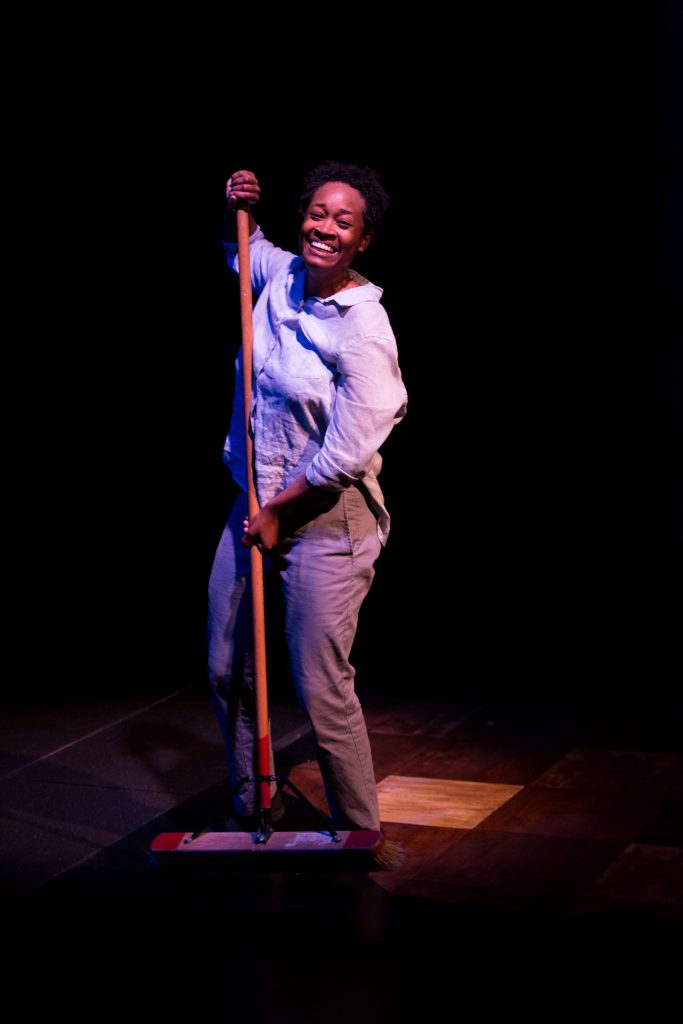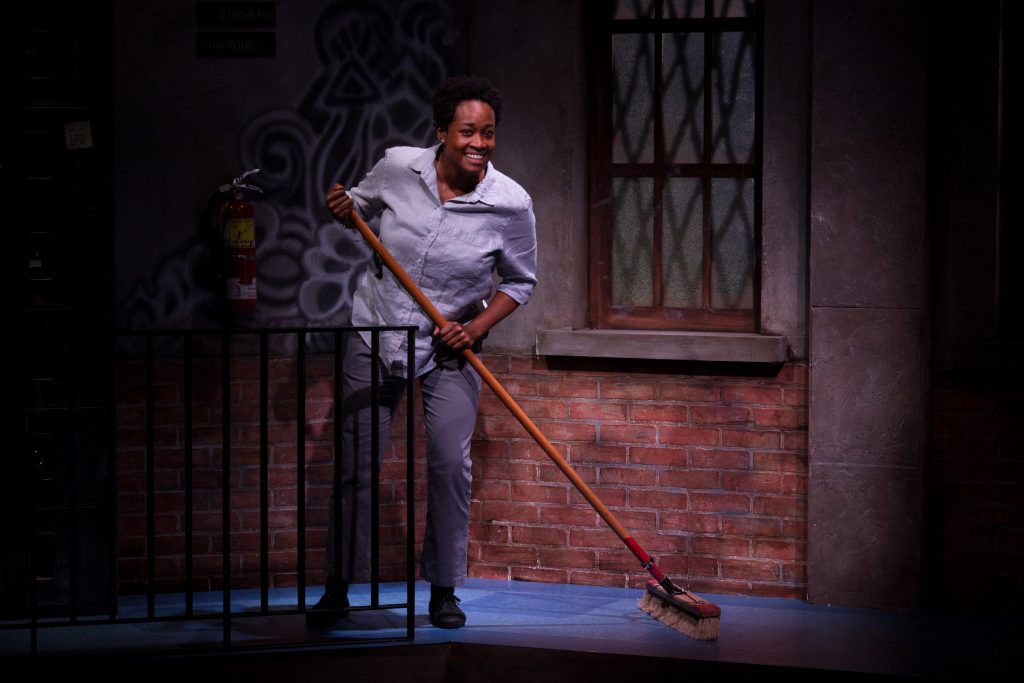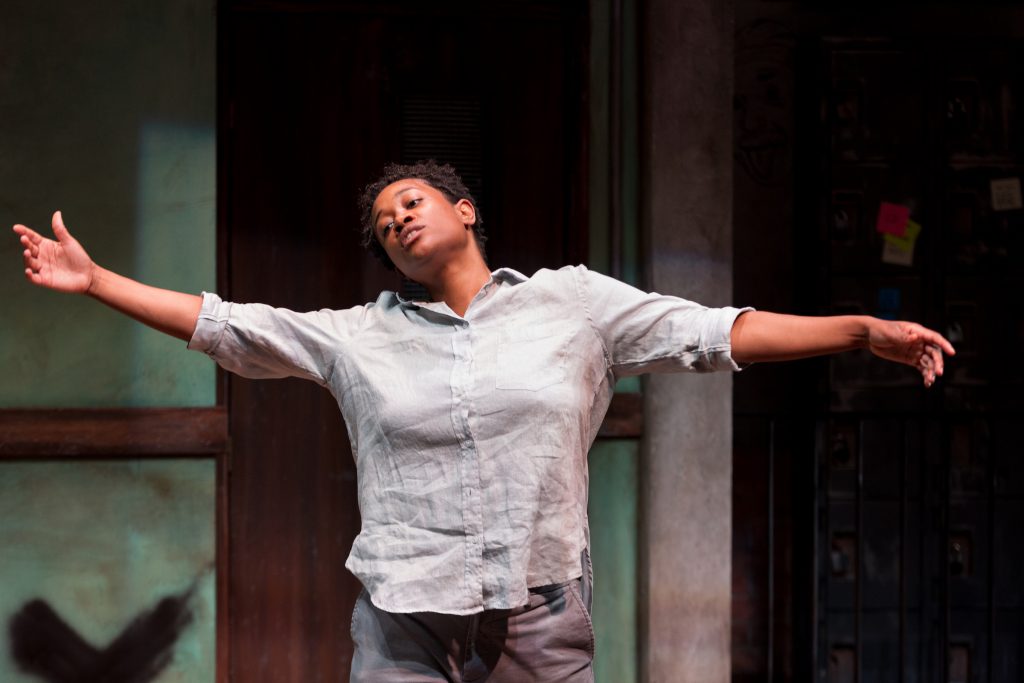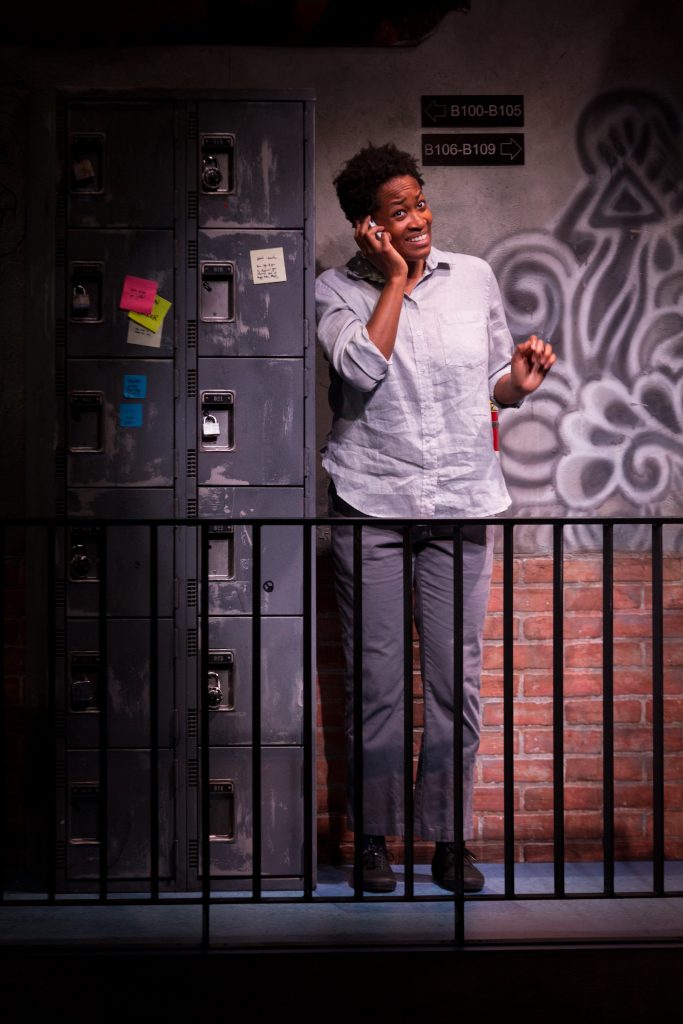
Credit: Moonrideer Productions
Newmont Stage at the BMO Theatre Centre to November 8, 2020
Tickets from $39 at artsclub.com or 604-687-1644. Reservations required; Covid-19 protocols are followed in the theatre. Online recording: $19
Posted October 2, 2020
One-person shows are great vehicles for performers and Celia Aloma does No Child . . . proud. Alternating performances with Ali Watson, Aloma completely embraces playwright Nilaja Sun’s sixteen characters over the course of a little more than an hour, sans intermission. No Child. . . has actually been performed with sixteen actors but because the plot is fairly predictable, it obviously works best as a performance piece for a highly accomplished actor.

Credit: Moonrider Productions
Semi-autobiographical, the play follows Miss Sun (clearly the playwright herself), a self-described “teaching artist”, in her 6-week drama class with some Bronx high school students. Described by the school’s janitor, 80-year old “Jackson Baron Copeford the Third”, as “delinquents”, these students are tough, foul-mouthed and have no interest in putting on a performance of Our Country’s Good, a play by Timberlake Wertenbaker, set in Australia in the 18th century. Initially, it seems an odd choice on the part of Miss Sun – a play about convicts putting on a play.

Credit: Moonrider Productions
It’s a theme many writers and playwrights have worked out before: an inspired teacher takes a group of disenchanted, disadvantaged kids and through the power of literature or theatre or art turns their lives around.
There is humour in No Child. . . and generosity but few surprises. So the success of No Child. . . hangs on performance and this Arts Club production, directed by Omari Newton, succeeds on that level.
We first meet the janitor/narrator who sets the stage for Miss Sun who, recipient of a government grant, comes into the chaotic classroom of young, nervous, new teacher Miss Tam – obviously over her head with these kids, the worst in the school. Shades of Carol Burnett leaning on her mop, Aloma switches with ease from janitor to character after character and, once in the classroom, becomes – one after another – Jerome, Brian, Coca, Shondrika, Xiomara, Jose and Chris. Where Miss Tam has been unable to control the kids, Miss Sun manages to engage them. Aloma, through word and body-language, transforms into drama queen Shondrika, four-mouthed Jerome (“Shut up bitch motherfucker”, he says to Brian who calls Jerome “Niggah”), resistant Coca (“This is stupid already. I don’t wanna act.”), homophobic Jose as well as Mrs. Kennedy, school principal, the security guard, substitute teacher Mrs. Projensky and a couple of others.

Credit: Moonrider Productions
With immune-compromised friends and family, I watched the live stream opening night performances rather than sit in the theatre despite all the precautions taken by the Arts Club. There are definitely some advantages to the digital recording: under the livestream direction of Raugi Yu, there are enough full stage shots to provide context, but there’s a lot of zooming that take us up close, in the face of the performer. Ironically, that produces a sense of intimacy despite the fact that we are watching the play on our computer or TV. Obviously missing is the feeling of community, of sitting in a darkened space with other like-minded souls.
It’s truly impressive how theatre companies are coping with the limitations Covid-19 imposes and the Arts Club is embracing change. Seating in the theatre is limited to fifty, there is no intermission and no lingering in the lobby. The digital recording is good for four weeks after purchase so there’s tremendous viewing flexibility.
I do sorely miss nights in the theatre: the crowd, the buzz, the camaraderie, the anticipation – will this play dazzle me? But despite the anxiety that underscores our lives these days, Celia Aloma transported me for sixty-five minutes out of my living room to Malcolm X Highschool and reminded me of the power of theatre to change lives.

